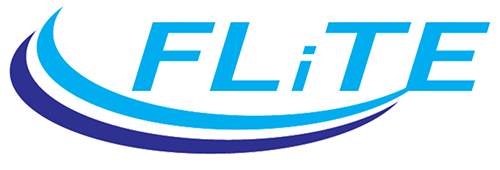Challenges in practice experienced by school- and university-based teacher educators

Self-Study Research in Europe
June 10, 2019
SHOW YOURSELF! Video-selfies for feedback
August 5, 2019Challenges in practice experienced by school- and university-based teacher educators


Teacher educators have been working in partnerships between schools and higher education institutions, to provide initial teacher education, for many years. The context for these partnerships is evolving due to external expectations, government-driven initiatives and developments within the profession. The increased focus on school-based teacher education resulted in changes in partnership structure. Now these new structures, and the distribution of responsibilities within them, are becoming more settled in many partnerships. This also has an impact on those working within the partnerships. We are interested in what this means for the teacher educators involved ‘on the ground’. Our research concentrated on the ‘what’ and the ‘how’ of our work, by listening to the challenges and dilemmas that teacher educators are experiencing in their practice, which reveal insights into the complexity of their work.
By using a narrative approach, our research investigated experiences of school- and university-based teacher educators working in initial teacher education partnerships in the Netherlands and England. Stories were collected about challenges or dilemmas in practice, which can be a rich source of professional learning and development for the narrator and for those hearing the story (Jarvis 2005). The stories included aspects of practice that fell into four key themes: guiding and assessing student-teachers; professionalism, growth and well-being; collaborative working in partnerships; and quality of teacher education. Although the themes are not new in teacher educator partnerships (for example Ping et al. 2018), the stories reveal that the way teacher educators have to deal with them in complex partnerships now involves the consideration of multiple perspectives.
Challenges or dilemmas in practice can provide a useful trigger for teacher educators to reflect on their thinking and actions and to examine their beliefs (Tillema and Kremer-Hayon 2005). Therefore, we developed the stories into ‘tools’ with different prompts to use for professional learning and development. The tools were used in workshops with teacher educators from schools and universities in England and the Netherlands, and at international conferences. When the tools are used in groups with both school- and university-based teacher educators together, the participants found them especially helpful to explore different perspectives within the group, to develop understanding. There are often no simple solutions to the dilemmas, but the value of discussing them is the collaborative professional learning opportunity they provide to a team. This concords with the observation that learning experiences within a team or local community may be more meaningful than individual learning (Van der Klink et al. 2017).
 The use of these challenges can afford a means by which collaborative learning can take place within or between partnerships, enhancing the impact on professional learning and development.
The use of these challenges can afford a means by which collaborative learning can take place within or between partnerships, enhancing the impact on professional learning and development.
The tools are freely available as web-based resources, in English at For Learning in Teacher Education, and will soon be available in Dutch.
Twitter: @FLiTE737
Email: FLiTE@herts.ac.uk

References
Jarvis, J. 2005. "Telling stories in class: an exploration of aspects of the use of narrative in a higher education context." Journal for the Enhancement of Learning and Teaching 2(1):6-13.
Ping, C., Schellings, G. L. M. & Beijaard, D. 2018. Teacher educators' professional learning: A literature review. Teaching and Teacher Education, 75, 93-104.
Tillema, H., & Kremer-Hayon, L. (2005). Facing dilemmas: teacher-educators’ ways of constructing a pedagogy of teacher education. Teaching in Higher Education, 10(2), 203-217. doi:10.1080/1356251042000337954
Van der Klink, M., Kools, Q., Avissar, G., White, S., & Sakata, T. (2017). Professional development of teacher educators: what do they do? Findings from an explorative international study. Professional Development in Education, 43(2), 163-178. doi:10.1080/19415257.2015.1114506


 Dr Elizabeth White is a Principal Lecturer at the University of Hertfordshire. Her responsibilities include research lead in initial teacher education and professional lead for the School Direct Route into teaching. She currently co-chairs the Association for Teacher Education in Europe Research and Development Community for the Professional Development of Teacher Educators, and is secretary for the International Professional Development Association (England). Her research focuses on teacher educators, especially those who are based in their work-place, alongside their learners. She is interested in their pedagogical choices, their professional development needs and how they can be nurtured in a professional learning community to support their emerging identity.
Dr Elizabeth White is a Principal Lecturer at the University of Hertfordshire. Her responsibilities include research lead in initial teacher education and professional lead for the School Direct Route into teaching. She currently co-chairs the Association for Teacher Education in Europe Research and Development Community for the Professional Development of Teacher Educators, and is secretary for the International Professional Development Association (England). Her research focuses on teacher educators, especially those who are based in their work-place, alongside their learners. She is interested in their pedagogical choices, their professional development needs and how they can be nurtured in a professional learning community to support their emerging identity. Dr Miranda Timmermans is working as researcher (applied professor) at Avans University of Applied Sciences, Breda, The Netherlands. Her PhD was on the Quality of Professional Development Schools (teaching schools). Although she still is engaged in the quality question, her research and work is now focused on workplace learning and teaching and school-based teacher education – trying to find critical characteristics of a workplace pedagogy. Next to her job as a researcher she is the chair of Velon, the Dutch Association of Teacher Educators. The aim of Velon is to contribute to the quality of teacher educators and of the profession as a whole.
Dr Miranda Timmermans is working as researcher (applied professor) at Avans University of Applied Sciences, Breda, The Netherlands. Her PhD was on the Quality of Professional Development Schools (teaching schools). Although she still is engaged in the quality question, her research and work is now focused on workplace learning and teaching and school-based teacher education – trying to find critical characteristics of a workplace pedagogy. Next to her job as a researcher she is the chair of Velon, the Dutch Association of Teacher Educators. The aim of Velon is to contribute to the quality of teacher educators and of the profession as a whole. 

